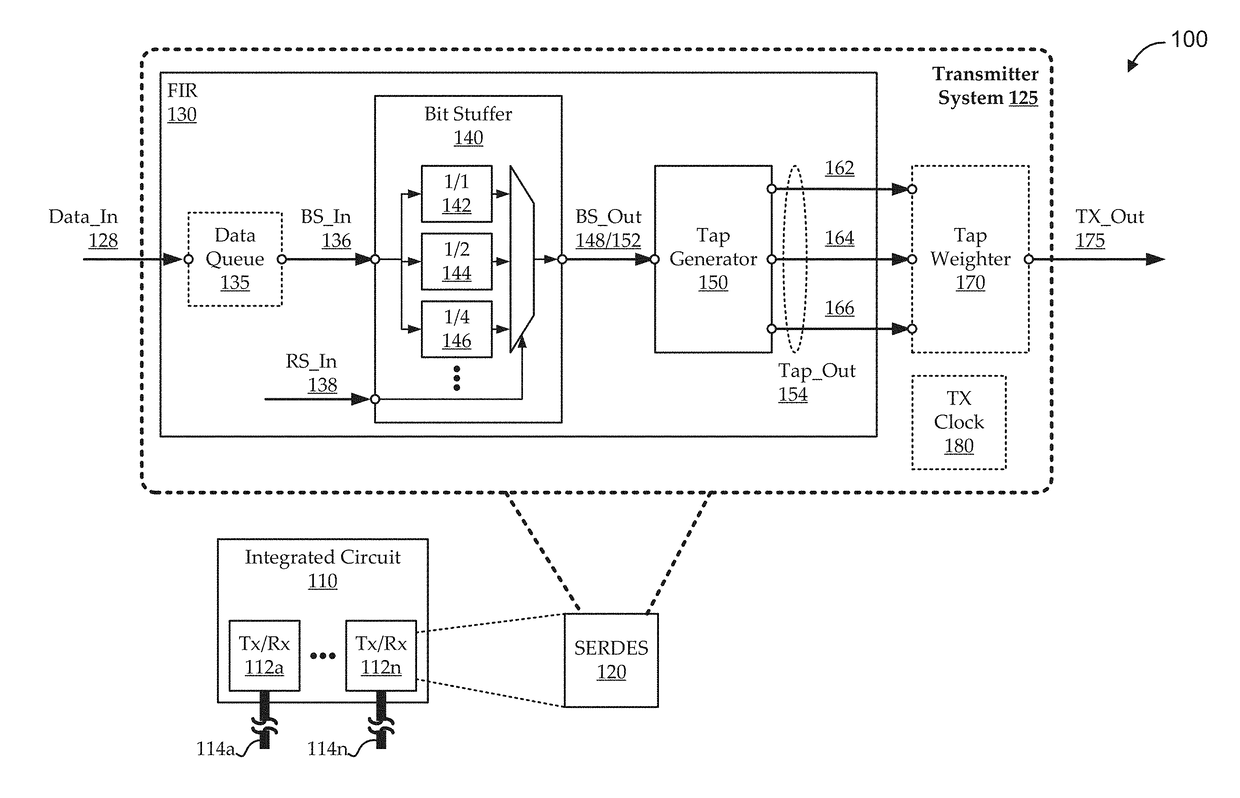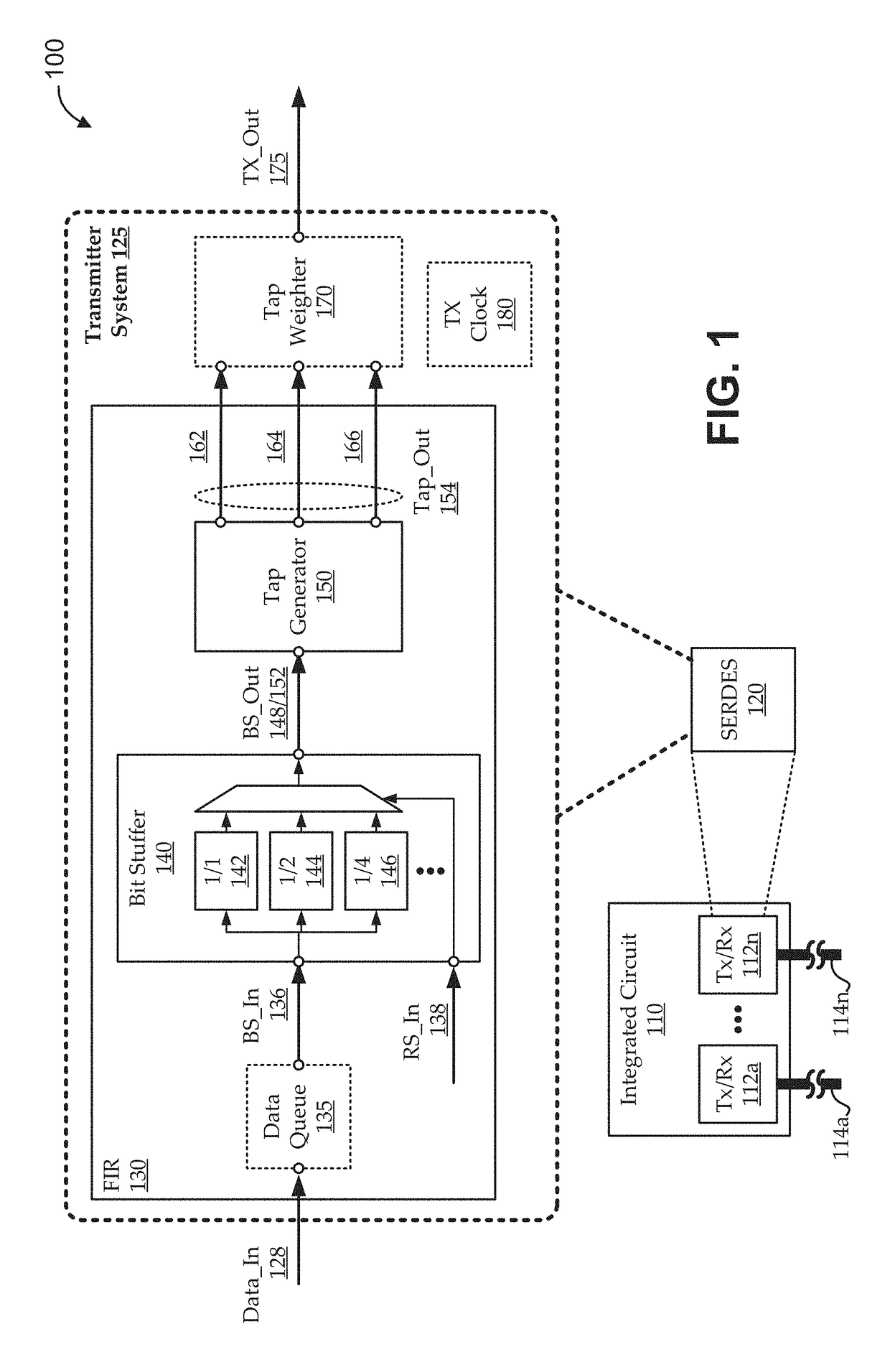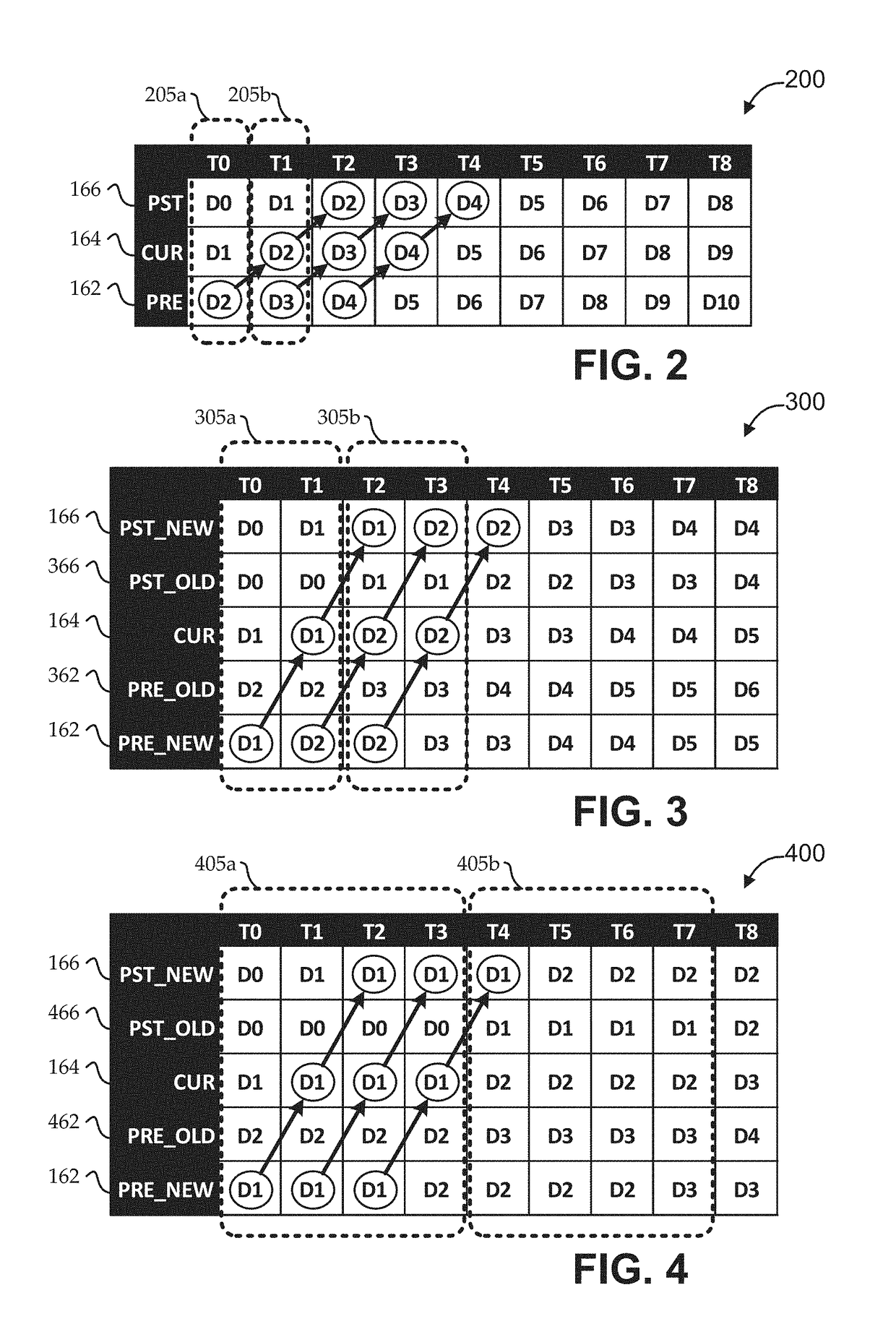Multi-rate finite impulse response filter
a finite impulse response and multi-rate technology, applied in the field of transmitter circuits, can solve problems such as the inability to close timing circuits in such circuits
- Summary
- Abstract
- Description
- Claims
- Application Information
AI Technical Summary
Benefits of technology
Problems solved by technology
Method used
Image
Examples
Embodiment Construction
[0013]Supporting ever-increasing data rates in modern integrated circuits can involve implementing transmission circuits that can handle such increasing data rates. For example, some modern protocols operate at data rates of 25 Gigabits per second or higher. In many applications, however, it is desirable for the transmission circuits also to operate in lower data rate modes, such as in a half-rate mode, quarter-rate mode, etc. Typically, sampling clocks in transmission circuits include phase-locked loop (PLL) circuits, which can only run at limited frequency combinations. Accordingly, some implementations introduce bit stuffing logic into the data path to achieve desired data rates. For example, to move from a full-rate mode to a half-rate mode, the bit stuffing logic can effectively repeat each bit in the bit stream, thereby doubling the duration of each symbol and halving the bitrate.
[0014]Implementing the bit stuffing can involve adding logic for each additional rate mode to be s...
PUM
 Login to View More
Login to View More Abstract
Description
Claims
Application Information
 Login to View More
Login to View More - R&D
- Intellectual Property
- Life Sciences
- Materials
- Tech Scout
- Unparalleled Data Quality
- Higher Quality Content
- 60% Fewer Hallucinations
Browse by: Latest US Patents, China's latest patents, Technical Efficacy Thesaurus, Application Domain, Technology Topic, Popular Technical Reports.
© 2025 PatSnap. All rights reserved.Legal|Privacy policy|Modern Slavery Act Transparency Statement|Sitemap|About US| Contact US: help@patsnap.com



